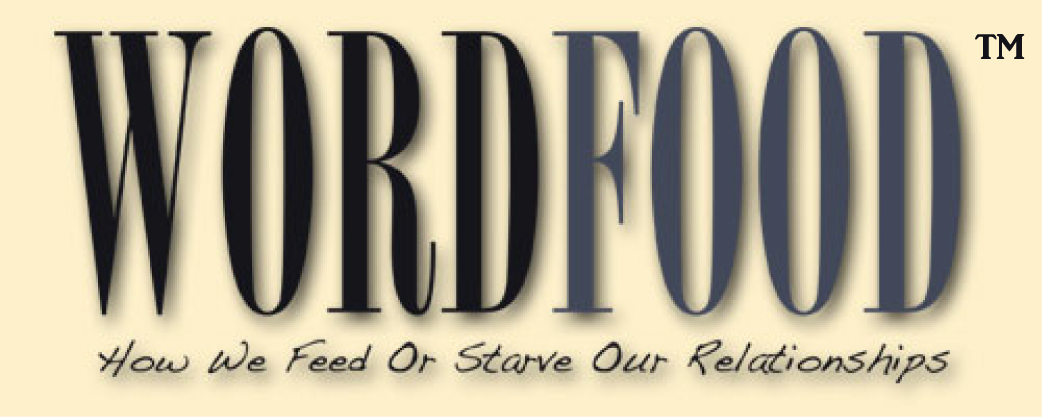Every so often we are dealt a rough hand and end up working for an unreasonable boss. Or we have to deal with a particularly unpleasant customer, someone who gets in our face about a refund or an unsatisfactory meal. Perhaps we live with someone who is demanding, blustery, out of control, my way or the highway, always demanding to be right.
I call this the Devil’s Food Diet in my book WordFood: How We Feed or Starve our Relationships. Wherever this person shows up, the words that we hear are pretty awful: “You owe me.” “You’re wrong, I’m right.” “I told you about this already, get this done.” While sometimes we can steer clear of the person, sometimes we just can’t: it’s the guy in charge, we’re the customer service rep that day, we’re the manager on call, maybe it’s our boss. Or maybe it’s us.
Life is demanding, and we call get stressed. I heard a story from a friend the other day who was on her way to the airport from a rather isolated resort Marriott in Texas. Her limo had arrived early and her two bags had already been loaded in. She walked up to the door across the car from him with her purse and her roller computer bag and got in.
A long drive later through early rush hour traffic she paid her $70 and got out, and her driver unloaded her bags. “Where’s my computer bag?” she said. It had been left on the curb at the Marriott. There ensued an angry exchange about who’s fault it was that this had happened. What was immediately apparent was that they had to go back to the hotel and retrieve it.
The driver called his boss and spoke in Arabic about what to do. My friend was angry and felt foolish, but she also realized that she hadn’t pointed out to the driver that she had the extra bag. When they got to the hotel, she found her bag, but the driver stood by the car door and said that his boss demanded payment in advance or else he wouldn’t drive her back to the airport. She laughed and said, “I guarantee I’ll pay you, let’s just make my plane, please!” This convinced the young man, and they drove off.
On the way back, she said that it wasn’t anyone’s fault- and the $140 was nothing in the course of a lifetime. “It is to my boss!” the young man laughed. She explained that in the big picture it wasn’t about the money. It was about accepting responsibility. To her, she told me later, it wasn’t worth the argument or the bad feelings trying to be right. They ended up telling tales all the way to the airport, getting back in plenty of time.
The young man gave her a discount on the trip as a courtesy, and she ended up with a funny story and a mild dent in her finances. It’s possible that the young man came away with a different way of thinking about Americans- perhaps his boss, too. Such an impression could have far-reaching impact far beyond just an afternoon airport ride.
Everyone makes a foolish error that can be costly. It can be embarrassing, like my friend’s. If you feel your blood pressure rising and hear your volume go up an octave or two, it’s a great time to challenge your ego before you get swept away. Someone is going to be a loser, and ultimately it may be you. There is nothing that compares to the feelings of graciousness when you can give way to a greater good, and come away friends.

